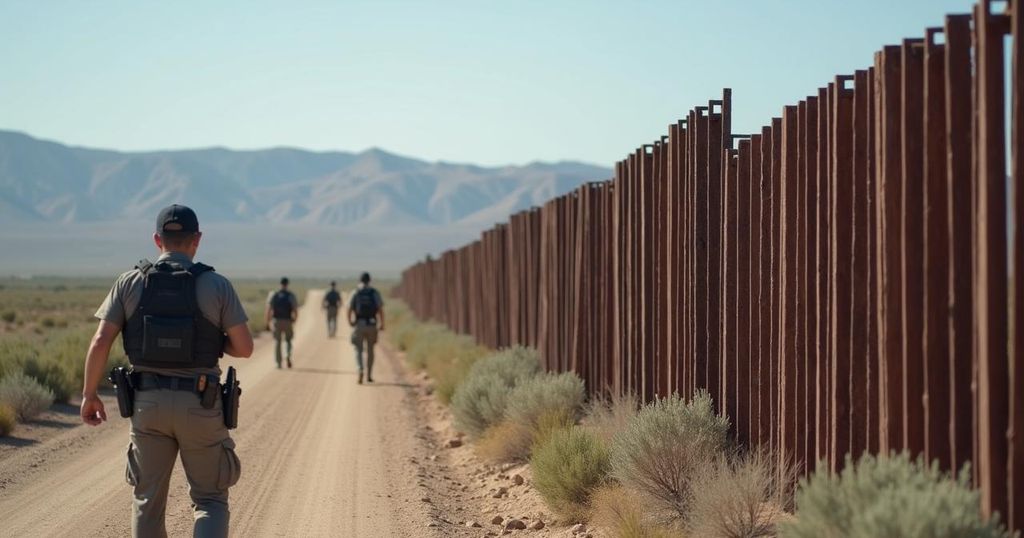Mexico’s Heightened Border Enforcement Amidst Upcoming US Elections
With the U.S. elections approaching, Mexico is enhancing its border enforcement, resulting in a decrease in migrant crossings to the United States. Analysts interpret this as a response to an informal agreement with the U.S. government, driven by economic motivations and the political stakes associated with immigration reform. The enforcement measures have significantly impacted the journey of migrants, as evidenced by the experiences of several families striving to reach the U.S. border amidst growing obstacles and stringent policies.
As the United States prepares for its upcoming election, Mexico is intensifying its border enforcement and blocking migrants, resulting in a significant decrease in the number of individuals reaching the U.S. border. Analysts suggest that this concerted effort can be attributed to an informal agreement between the two nations, negotiated by the Biden administration, which aligns with Mexico’s economic interests to maintain order at the border. Recent data indicates a drop in illegal crossings at the U.S. border, plummeting from nearly 250,000 in December to under 60,000 by the following month, the lowest figures observed since Donald Trump was in office. Mexico’s immigration policies have become increasingly strict as they navigate their influential role in the U.S. electoral politics, particularly impacting the Democratic ticket, where immigration is considered a vulnerability for Kamala Harris. The ongoing plight of migrants is exemplified by the harrowing journey of a Venezuelan family who attempted to traverse Mexico in hopes of reaching the United States, only to find themselves stuck in Mexico City amidst rising enforcement measures. In late 2023, President Biden engaged in direct discussions with his Mexican counterpart amid a surge of migration that presented challenges to U.S. cities and the Democratic agenda. In response to political pressures and the potential for economic repercussions, Mexico adopted a range of measures, such as enforcing visa requirements and ramping up deportations, effectively creating a system that complicates the journey for migrants. As these enforcement strategies continue, uncertainty looms regarding their sustainability under Mexico’s new president, Claudia Sheinbaum. Sheinbaum’s administration is expected to uphold certain tenets of the agreement to prevent political fallout from the perceived chaos at the border. This coordination reflects a shift in the diplomatic dynamics between the U.S. and Mexico, whereby immigration management has become a significant tool for political leverage. “What they do on the ground in Mexico does have a potential impact on the outcome of the election in November.” – Arturo Sarukhán, former Mexican ambassador to the U.S.
The article addresses the evolving strategies employed by Mexico to regulate migration in anticipation of the U.S. presidential elections. It highlights the informal agreements made between the Mexican and U.S. administrations to curb the influx of migrants at the southern border, emphasizing the broader implications of these policies on bilateral relations and domestic politics. The tension surrounding immigration enforcement has become especially pronounced given its potential to influence electoral outcomes, particularly for the Democratic Party, as migration issues are pivotal to both party platforms.
In conclusion, the tightening of border enforcement by Mexico showcases the intersection of migration policy and electoral strategy in the context of U.S.-Mexico relations. As a result of ongoing discussions and shared interests, migration flows to the U.S. have significantly reduced. The article underscores the complexities of managing immigration and the political ramifications that arise from such policies. The future of these enforcement strategies remains uncertain as Mexico navigates its domestic priorities while balancing its role in U.S. political dynamics.
Original Source: www.usatoday.com




Post Comment